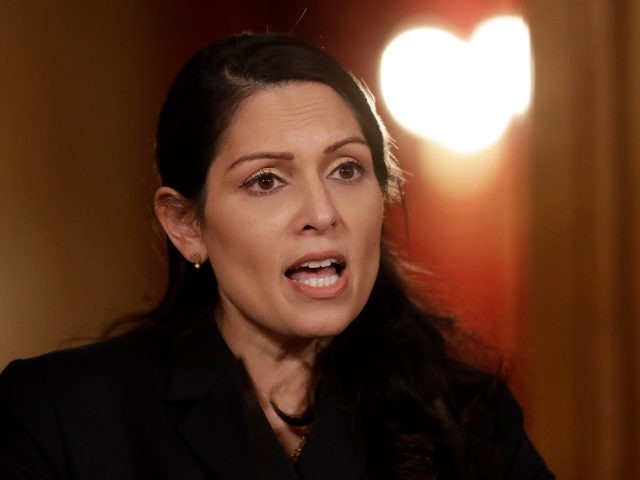Senior minister Priti Patel has said that the BBC’s reputation is “highly damaged” following the Dyson report that found Martin Bashir had used deception to obtain an interview with Diana, Princess of Wales and that the BBC had covered up what it knew about how the journalist obtained the interview.
Speaking to the BBC’s Andrew Marr on Sunday, Home Secretary Patel said: “There is no doubt this world-class institution and its reputation has been highly damaged.”
“Lessons will have to be learnt. No question about that,” Ms Patel added.
The Home Secretary also suggested that the broadcaster would be “working with the government… going forward, looking at the midterm Charter review next year”.
Prince William Slams Fake News BBC for Diana Interview that ‘Contributed Significantly’ to Her Fears, Isolation https://t.co/vJwliWWZtS
— Breitbart London (@BreitbartLondon) May 21, 2021
Boris Johnson’s government had initially been bullish towards the broadcaster, with the prime minister raising the possibility of looking into abolishing the TV licence fee model — a tax on those who watch live television or use BBC iPlayer — during his December 2019 election campaign.
However, by 2020 there were reports that Johnson had gone soft on his position, seeking instead to reform the broadcaster rather than revolutionise its funding structure, which requires even those who do not consume any BBC material to pay the licence fee if they watch live television.
In 2021, the government’s review on decriminalising non-licence fee payment was also shelved.
Earlier this week, Culture Secretary Oliver Dowden had said that the report had revealed the “damning failings at the heart of the BBC” and that the government would consider “whether further governance reforms at the BBC are needed in the mid-term Charter review”.
“I welcome the fact that the new leadership launched this independent inquiry and expect them to ensure that this can never happen again.”
Farage Criticises ‘Out-of-Touch’ BBC Still ‘Haunted’ by Rise of UKIP https://t.co/OfDtpEglUC
— Breitbart London (@BreitbartLondon) April 22, 2021
Asked what reforms to which Mr Dowden may be referring, Ms Patel said on Sunday: “I think the culture secretary is absolutely right around governance, accountability, transparency.
“But Andrew, I think we also have to reflect we live in the age of multimedia; the role of the BBC, when it comes to its performance, where it stands in a multimedia world, this is the Netflix generation. How relevant is the BBC?”
Ofcom, the UK’s broadcasting watchdog had warned in 2019 that the current funding model of the licence fee was unsustainable because young people were “tuning out” of the BBC and are moving towards online subscription services like Netflix and Amazon Prime.
In March, it was revealed that the BBC had lost some 200,000 subscribers in 2020, with the number of households choosing not to pay the TV licence rising to 1.7 million, out of an estimated 27 million households.
While the figure is relatively small, Director-General of the BBC Tim Davie said they would be “watching that number like hawks. It is the majority of our revenue, so it is utterly critical to us.”
BBC, C5 Presenter Asks: Is It ‘A Problem’ That Prince Philip Funeral Attendees Are White? https://t.co/c4Ek1WEE8D
— Breitbart London (@BreitbartLondon) April 16, 2021

COMMENTS
Please let us know if you're having issues with commenting.